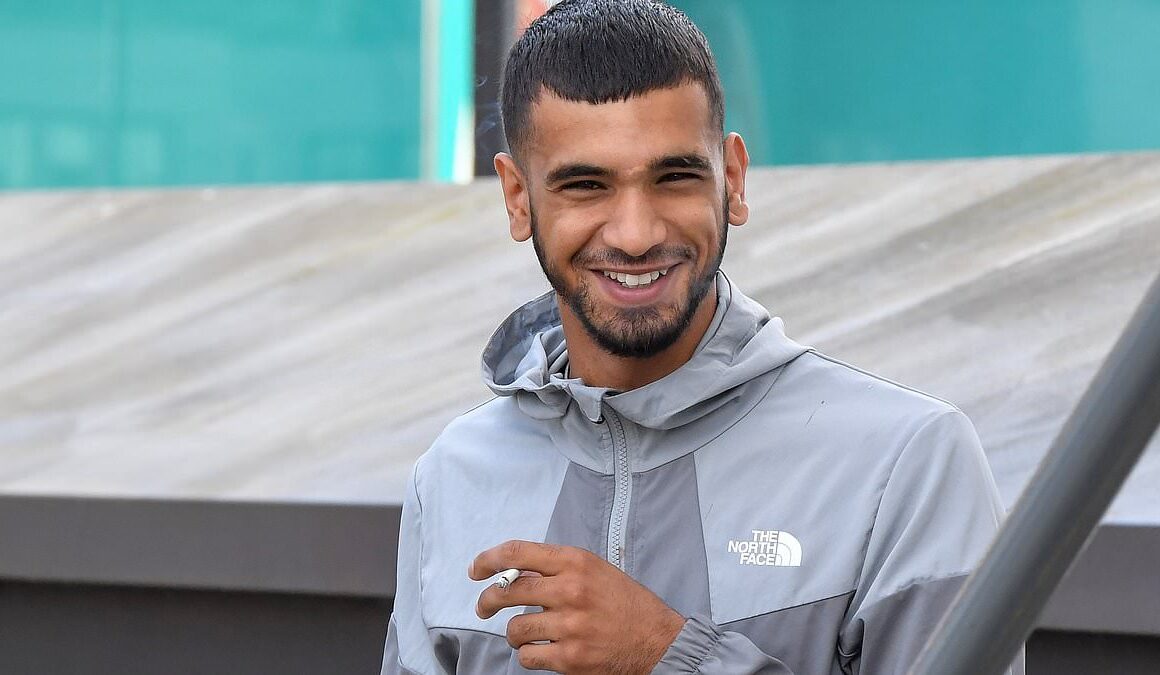An 11-year-old girl was unlawfully killed after her older brother punched her in the head, a coroner has concluded.
Falaq Babar died in hospital more than three weeks after she collapsed at her family home in Rochdale, Greater Manchester.
An inquest heard how her half-brother Suhail Mohammed, 23, had texted his girlfriend saying he had ‘punched’ and ‘killed’ Falaq.
He claimed he acted ‘in the heat of the moment’ after hearing Falaq ‘screaming her head off’.
Mr Mohammed didn’t phone an ambulance until 23 minutes later when she became ill and lost consciousness.

Suhail Mohammed, 23, texted his girlfriend saying he had ‘punched’ and ‘killed’ Falaq, his younger sister. He claimed he acted ‘in the heat of the moment’ after hearing Falaq ‘screaming her head off’. He didn’t phone an ambulance until 23 minutes later when she became ill and lost consciousness.

Falaq Babar, 11, died in hospital more than three weeks after she collapsed at her family home in Rochdale, Greater Manchester
He was subsequently arrested and detectives believed there was sufficient evidence for the Crown Prosecution Service (CPS) to consider a charge of manslaughter.
But the CPS declined to prosecute partly due to ‘complex medical evidence’ about whether Falaq had an ‘underlying’ brain condition.
Today, senior coroner Joanne Kearsley ruled that Mr Mohammed’s ‘deliberate act’ of punching Falaq had triggered a ‘pre-existing abnormality’ in a blood vessel to her brain.
Recording a conclusion of unlawful killing, she said the ‘trauma’ led to increased blood pressure or anxiety which led to a rupture of the abnormality in the blood vessel, leading to her fatal brain bleed.
Ms Kearsley said she was satisfied that Mr Mohammed had become ‘frustrated’ by ‘bickering’ between Falaq, who was in the bathroom with her younger brother, and another younger brother who wanted to get inside.
Mr Mohammed had ‘shoulder charged’ the bathroom door with ‘significant force’ without warning, she said, and then – on the balance of probabilities – punched her on the head.
She said it was consistent with the evidence and whether Falaq additionally hit her head on the door or the wall cannot be determined.
Giving evidence, Mr Mohammed admitted barging into the bathroom using a ‘bit of force’ but claimed it had been ‘stuck’ due to damp.
He initially claimed the door had been damaged previously before changing his account and crime scene investigators found it opened easily and no evidence it had been bolted shut.
Mr Mohammed said he’d found Falaq on the bathroom floor near the radiator and when she became unwell he called for ambulance, telling the call handler she’d ‘slipped’.
But in a series of text messages with his girlfriend Sahar Fiaz he had revealed how he ‘punched’ Falaq.
‘I’ve killed Falaq,’ he wrote.
‘WDYM (what do mean),’ she replied.
‘I punched her in the head.’

Mr Mohammed was arrested and he initially told police his sister must have fallen backwards and hit her head after he forced his way into the bathroom. But in a later interview he refused to answer questions after the text messages were discovered on his mobile phone

Senior coroner Joanne Kearsley ruled that Mr Mohammed’s ‘deliberate act’ of punching Falaq had triggered a ‘pre-existing abnormality’ in a blood vessel to her brain. Recording a conclusion of unlawful killing, she said the ‘trauma’ led to increased blood pressure or anxiety which led to a rupture of the abnormality in the blood vessel, leading to her fatal brain bleed
He went on to say his sister was being taken to hospital before Ms Fiaz then asked: ‘What she did that you hit her (sic)?’
Mt Mohammed responded: ‘Zero. Screaming her head off.’
When Ms Fiaz said he ‘shouldn’t have done that’, Mr Mohammed replied that he ‘didn’t know’ he was going to ‘knock her out’ and Ms Fiaz accused him of being ‘heavy handed’.
‘It was the heat of the moment.’ he replied.
The inquest heard how analysis of the 999 call made by Mr Mohammed revealed how he spoke to family members in the background, urging them to not ‘make big deal’ of the incident, adding: ‘Don’t tell, don’t disclose’.
Mr Mohammed was arrested and he initially told police his sister must have fallen backwards and hit her head after he forced his way into the bathroom.
But in a later interview he refused to answer questions after the text messages were discovered on his mobile phone.
He also declined to give evidence at the inquest earlier this week after it was adjourned in November so police could investigate ‘new evidence’.
Ms Kearsley labelled the evidence provided by family members as ‘inherently improbable, inconsistent and unconvincing’, saying the accounts given were ‘untrue’ and were made in ‘an attempt to disguise or cover up the fact that Falaq’s elder sibling hit her in a fit of pique’.
She said she couldn’t understand why the family had refused to allow police to speak to Falaq’s younger brothers – aged 5 and 7 – who would have been key witnesses.
Home Office pathologist Dr Philip Lumb recorded Falaq’s cause of death as severe hypoxic ischemic brain injury with brain swelling due to a intracerebellar and intraventricular haemorrhage due to ruptured vascular pathology along the course of the left posterior inferior cerebellar artery (PICA).
Dimitries Varthalitis, a consultant paediatric neurosurgeon who had operated on Falaq at the Royal Manchester Children’s Hospital, said he agreed with pathology evidence that an abnormal venous malformation (AVM), which affects only 0.05% of the population, in the PICA blood vessel had caused her brain bleed.
He said people could be asymptomatic and the ‘vast majority’ of bleeds were ‘spontaneous’, but ‘trauma’ could also be a cause.
Another expert, neuropatholigist Dr Daniel Di Plessis, described it as a ‘very rare’ type of brain bleed.
He believed on balance that ‘trauma’ had played a part and he said there was ‘no doubt’ a punch could have caused the blood vessel to rupture.
Addressing Falaq’s family, Ms Kearsley said her findings would make for ‘difficult reading and reflection’ and the love they had shown her ‘could not detract from her tragic death’.
Given the evidence only met the coronial standard, she said, she would not be referring the case back to the police or the CPS.
She added: ‘My only hope is you can now accept and acknowledge how Falaq died and somehow look to rebuild and move forward together.’









